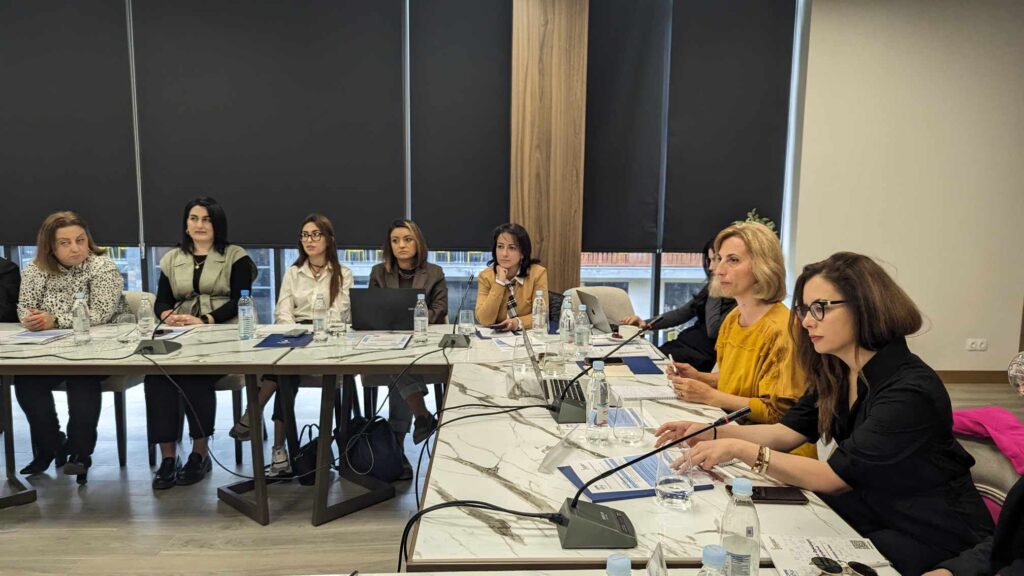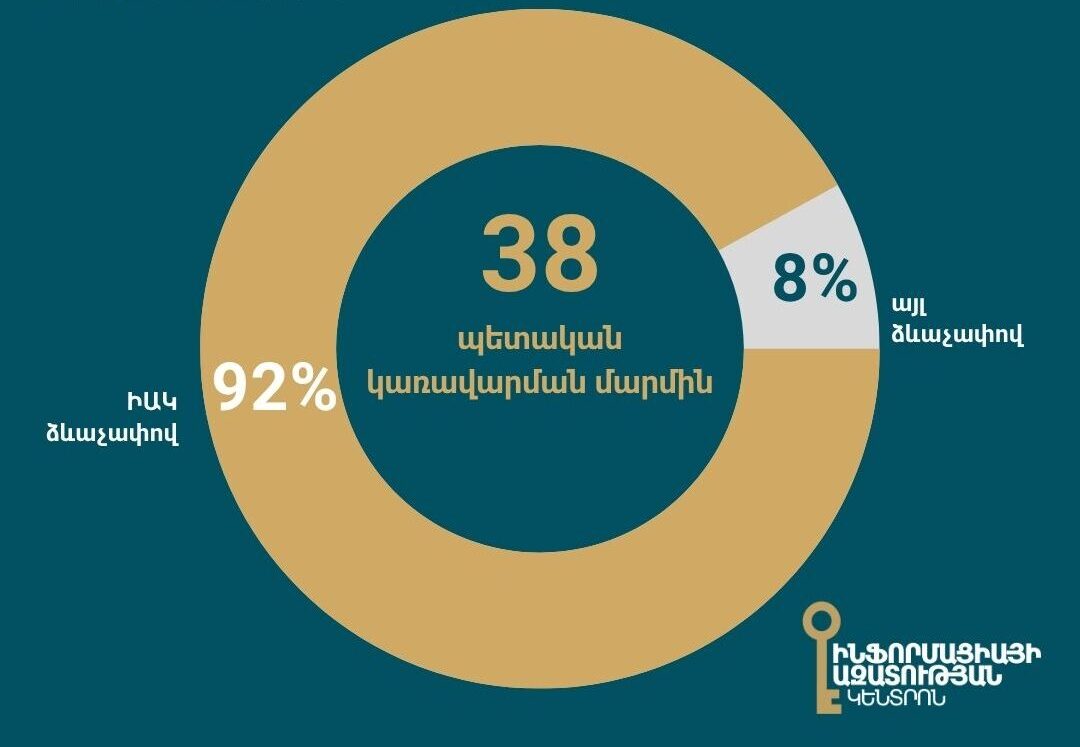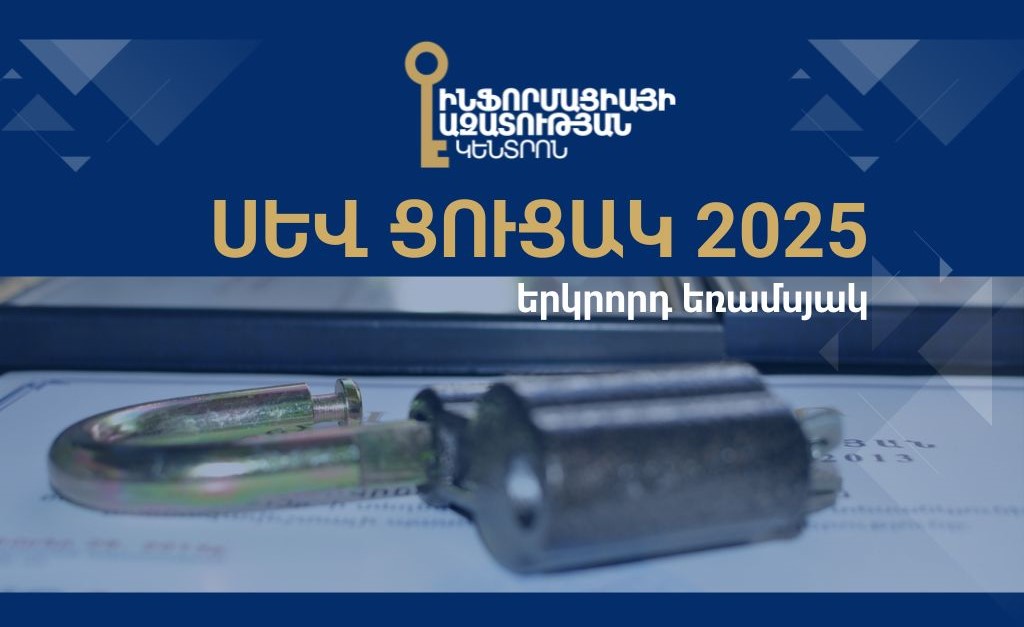From May 19 to 20, more than 30 representatives of the business community participated in the “Information Space Integrity։ With business, for business” workshop organized by the Freedom of Information Center of Armenia (FOICA) in Dilijan.
The purpose of the workshop was to discuss with the representatives of the business community the impact of misinformation on business, the local and international experience of risks and their management, as well as the Concept for Combating Disinformation 2024-2026 and the resulting action plan adopted by the RA Prime Minister at the end of last year.
The strategic documents were developed by the FOICA in cooperation with the Public Relations and Information Center and with the participation of sector experts and CSOs.
Business managers, owners, communication specialists, and representatives of business associations participated in the working discussion. Within the framework of the workshop, the participants were presented with the main directions of the concept and the action plan arising from them. The participants discussed the role of business and the mechanisms of interaction with other actors in the context of implementation and monitoring of the concept.
“We operate in many countries and I must mention that in many places the private sector is often left out of discussions related to the information environment, and many representatives of the business community are not aware of the special role they play in the formation and promotion of a healthy and well-mannered information environment. I am glad that such discussions provide an opportunity to involve business and to discuss together the challenges and opportunities related to information flows,” – said Anna Goltermann, coordinator of programs in the Europe and Eurasia region of the Center for International Private Entrepreneurship, in her speech.
Using the World Café method, the participants highlighted the main problems and risks of the business community in the combating disinformation, mapped the available resources, and discussed the necessary prerequisites for the effective implementation of the specific actions provided for in the document and their role in that process.
The participants noted that the development of business associations and increasing their role is important in the fight against misinformation. They believe that the business should pay more attention to the issues of engaging communication specialists developing communication crisis plans, develop the mechanisms of interaction with the mass media. The main challenge of small and medium-sized businesses in particular is limited human and financial resources. All groups emphasized the creation of a business ombudsman institution, which would act as a mediator in both private-state and private-CSOs relations. The participants also emphasized the importance of training profile specialists both in the private sector and in the media field. In this context, the issue of developing and implementing joint training programs was also raised.
On the second day of the workshop, the participants discussed the mechanisms and possibilities of state-business-CSO cooperation in the combating disinformation. “Of course, it is important that there is already an approved document in this field that brings together the potential of all actors, but it is necessary to be consistent and create the necessary mechanisms for the effective implementation of the developed action plan, otherwise these ideas will remain on paper,” said Arman Petrosyan, the vice president of the SME Cooperation Association.
Within the framework of the workshop, the participants also hosted Anzhela Kzhdryan, Coordinator for Strategic Communications and Participatory Governance Reform, Office of the Prime Minister. The speaker presented to the business community the main directions of the RA government’s strategic communication reforms, details related to the implementation and implementation dates of the toolkit for increasing the effectiveness of participation, and then answered the questions.
The representatives of the business community spoke about the problems related to the state-business community dialogue. Emphasizing the importance of mechanisms of direct and effective work with the state, the participants also presented proposals aimed at organizing the government-business communication process.
The two-day working discussion turned into the first step towards the implementation of the concept of the fight against misinformation with the participation of businesses. Thanks to the two-day discussions, the level of business awareness was raised both about the possible impact of disinformation on the business sector, as well as about the document aimed at fighting against it. At the same time, IAC collected the observations and approaches of the most experienced representatives of the business community regarding the challenges in the field, the experience, and approaches to overcome them, and also mapped the participants’ observations regarding the possibilities of interaction with the state and CSOs in the context of the combating disinformation.
The participants particularly emphasized the active participation of all actors during the development of the monitoring methodology and suggested the organizers develop the regulations of the working group envisaged in the framework of the concept and meet next time to discuss the issues related to the working group and the monitoring of the implementation of the concept.









